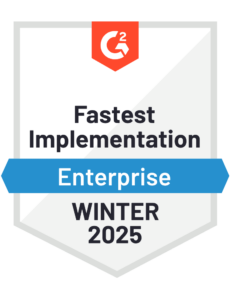What Benefits Does Private Cloud Offer Finance and IT Teams?
Blog post
Share
A 2019 Deloitte Survey found that 93% of business executives stated that they were either in the process of adopting or considering the Cloud for their organizations. The COVID-19 pandemic has accelerated Cloud adoption strategies as companies find themselves in a breakneck race to build best-in-class virtual workforce productivity.
When considering the adoption of a cloud-based solution, there are a few options that an organization can choose from, such as public or private cloud. Choosing a Software-as-a-Service provider that offers private cloud has many advantages for your organization.
Lower Total Cost of Ownership
There are several costs associated with running business solutions on internally managed infrastructure. These costs include cash outlay or debt burden associated with infrastructure-related CapEx expenditures. Equally important, OpEx costs driven by hardware depreciation, labor, software licenses, and energy quickly add up. As companies dial in their investment and cost management strategies, they are choosing to be much more strategic with CapEx investments and more diligent about total cost of ownership metrics.
In the race to the cloud, many companies have reacted by simply migrating internal workloads to Infrastructure-as-a-Service (IaaS) platforms. Though this can address the CapEx side of the equation, costs related to IaaS resource consumption, skillset retooling, and labor do little to impact the OpEx side of the equation.
The emerging winner in cloud strategies is quickly being recognized as SaaS solutions delivered via private cloud.
Data Integrity, Security and Compliance
Where modern trends related to right-sizing investments and reducing total cost of ownership fairly universally point to cloud-based Software-as-a-Service models, data privacy, information security, and regulatory compliance requirements can often present headwinds for these strategies.
At a high level, SaaS providers are going to provide higher levels of security and more consistent compliance outcomes due to the narrowness of their overall technology footprint. However, in industries such as banking and health care or in regions like Europe, the inability of many SaaS providers to meet compliance requirements often justify the higher cost of in-house managed solutions. Private cloud solutions are actually very effective in balancing the cost, compliance, and privacy needs required by many corporations.
Reallocation of Resources
Moving from on-premise data centers to cloud-based SaaS solutions frees up IT resources to contribute to technology initiatives that offer strategic advantages to a business. Furthermore, refocusing technology resources on business solutions brings team members closer to the businesses and the customers they service.
Do business leaders want to invest core employee time on chasing root causes for storage failures and challenged on-premise software upgrades? Or would they rather invest these limited resources in integrating key business systems goaled at improving NPS and building competitive differentiators?
The answer is obvious.
Trintech As A Software-as-a-Service That Offers Private Cloud
Trintech delivers financial close and accounting intelligence SaaS-based solutions on both public and private cloud platforms. Trintech is recognized industry-wide for its robust hyper-converged server architecture and an edge network that spans the globe. This allows Trintech to service the needs of a global customer base with flexibility, performance, availability and data integrity.
Whether it be “Bring Your Own Key” encryption or the custom scheduling of software updates to timelines compatible with your ERP maintenance and finance close lockout dates, Trintech understands the needs of the Office of Finance for global businesses in most every industry.
To learn more about Trintech’s unique private cloud offerings, visit the following webpages:
Trintech’s Cloud Financial Platform
Trintech’s Compliance Approach
Written by: Derick Schaefer, Chief Technology Officer, Trintech






